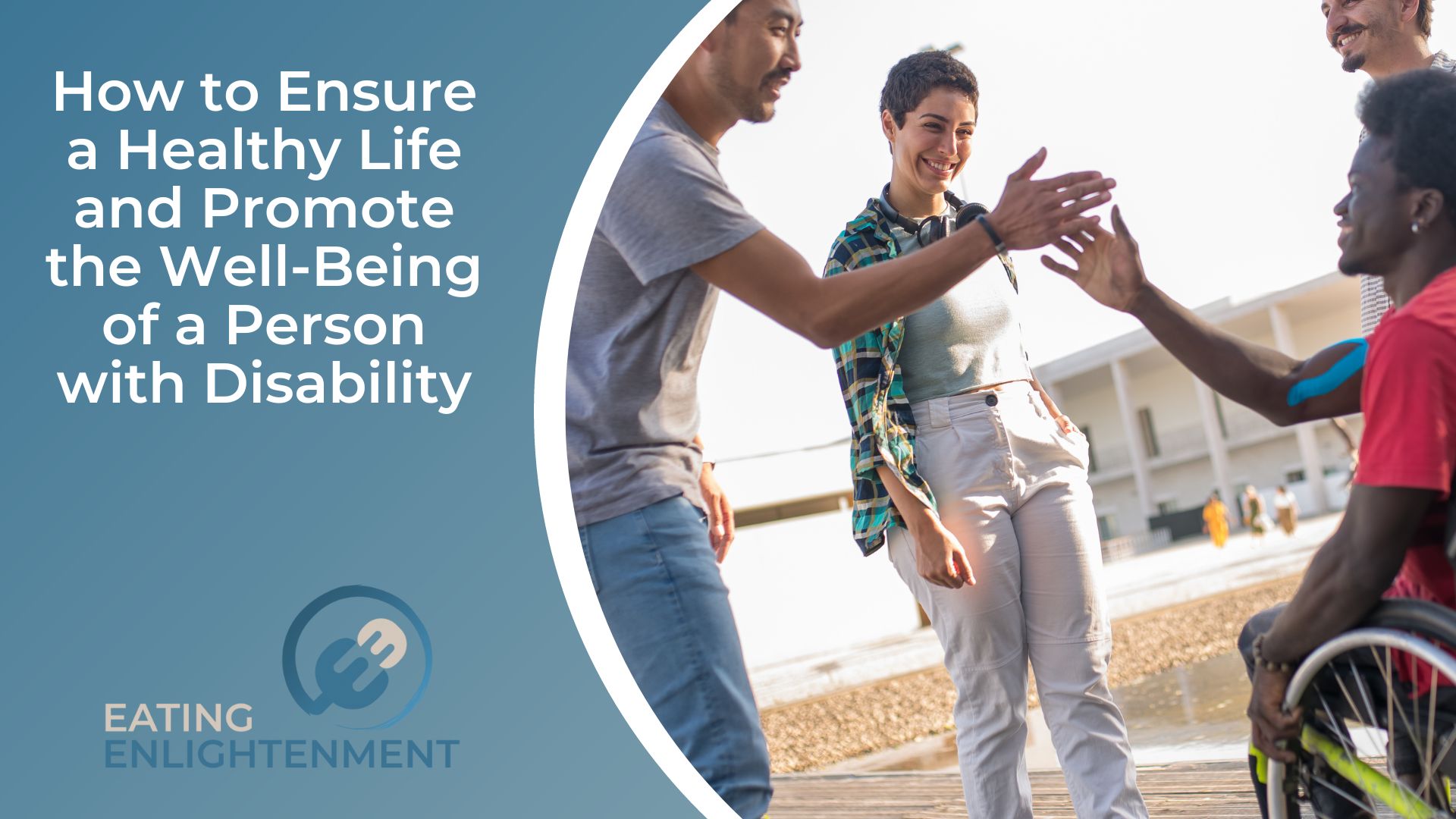Living a healthy and fulfilled life is something everyone aspires to, regardless of their physical or mental abilities. For people with disabilities, achieving this goal can come with unique challenges, but it is by no means unattainable.
This document is designed to provide guidance on promoting the well-being of persons with disabilities, covering various aspects such as nutrition, physical activity, mental health, and social inclusion. We aim to empower individuals, caregivers, and communities with practical strategies to ensure a wholesome lifestyle for everyone, highlighting the fact that disability does not equate to inability.
Nutrition As The Cornerstone of Health
A healthy lifestyle for individuals with disabilities is built upon good nutrition. A well-balanced diet not only supports physical health but also promotes mental well-being. Including a variety of fruits, vegetables, whole grains, lean proteins, and healthy fats in daily meals can help manage weight, boost energy levels, and reduce the risk of chronic diseases.
It’s important to consider that individuals with certain disabilities may have specific dietary needs. Seeking guidance from a registered dietitian can provide a customized nutrition plan tailored to those unique requirements. Remember, prioritizing good nutrition is key to a vibrant and fulfilling life.
A good starting point towards healthy eating is to follow a few simple guidelines, including:
- Eating a variety of foods from all food groups.
- Limiting processed and high-fat foods.
- Consuming meals at regular intervals throughout the day.
- Staying hydrated by drinking plenty of water.
Financial Aid for Accessibility Improvements
Accessibility is essential for individuals with disabilities to lead healthy lives. However, modifying living spaces and acquiring assistive devices can be financially burdensome. Fortunately, there are various avenues available to help ease the financial strain. Government programs such as the Social Security Disability Insurance (SSDI) and Supplemental Security Income (SSI) can provide financial aid for accessibility improvements.
Additionally, the ability to apply for a disabled facilities grant can help cover the costs of making necessary home modifications. It’s essential to research and take advantage of these resources to ensure a comfortable and safe living environment. Those with disabilities also have the right to request reasonable accommodations from their employers, ensuring equal opportunities in the workplace.
The Power of Physical Activity
Regular physical activity is crucial for maintaining good health, regardless of ability. For individuals with disabilities, it may be necessary to adapt exercises to suit their unique circumstances. Engaging in physical activity can improve cardiovascular health, increase strength and endurance, and enhance mood and self-esteem.
It’s important to consult with a healthcare professional before starting an exercise routine, especially for those with significant physical limitations. With proper guidance and modifications, individuals with disabilities can reap the countless benefits of staying active.
A good idea to promote physical activity is by joining adaptive sports or recreational programs. These activities not only provide a chance to stay physically active but also offer opportunities for socialization and community inclusion.
Prioritizing Mental Health

Physical health is often at the forefront of discussions on healthy living, but mental health is just as important. Individuals with disabilities may face additional stressors and challenges that can negatively impact their mental well-being.
It’s crucial to prioritize self-care and seek support when needed. This can include therapy, support groups, and developing coping mechanisms. Caregivers also play a vital role in promoting the mental health of individuals with disabilities by providing a supportive and understanding environment.
One of the barriers to mental health care for individuals with disabilities is the lack of accessible services. It’s essential for mental health professionals to be trained in working with diverse populations and provide accommodations such as sign language interpretation or alternative communication methods. A lot of progress has been made in this area, but there is still work to be done to ensure equal access to mental health care for everyone.
Cultivating Social Inclusion
Social inclusion is essential for the well-being of individuals with disabilities. Feeling connected to others and being included in activities and events can improve self-esteem, reduce isolation, and promote overall happiness. Communities can foster social inclusion by creating accessible spaces and events, promoting diversity and inclusivity, and educating others on disability awareness. It’s also crucial to involve individuals with disabilities in decision-making processes and value their opinions and contributions.
Over a period, the perception of disability has shifted from a medical model to a social model, recognizing that barriers in society are what create disabilities rather than the individual’s impairments. Therefore, it is everyone’s responsibility to promote social inclusion and create an inclusive environment for all individuals.
Nevertheless, ensuring a healthy life for individuals with disabilities involves a multifaceted approach that encompasses nutrition, physical activity, mental health, social inclusion, and financial accessibility. By adopting a well-balanced diet, engaging in regular physical activities, prioritizing mental health, and fostering an inclusive environment, every individual, regardless of their physical or mental abilities, can lead a fulfilling and healthy life.
Furthermore, the availability of financial aid for accessibility improvements is a significant resource that can help individuals with disabilities live more comfortably and independently. The vital takeaway from this guide is that disability does not equate to inability. With the right resources, support, and mindset, individuals with disabilities can overcome challenges and lead healthy, happy lives.



